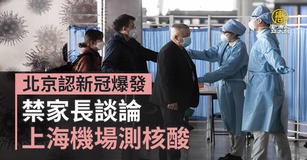【新唐人2012年1月5日訊】湖北省最近要求省內各媒體,不得進行異地監督和跨省監督報導,引起大陸媒體人的高度關注和感嘆。媒體人表示,湖北省的做法,顯示出中共當局擔心十八大之前輿論失控。
中共湖北省委常委會最近向省內媒體作出了八項要求。包括牢牢把握輿論導向、規範新聞採訪、加強新聞審核、規範互聯網使用、規範媒體微博管理、改進輿論監督原則等,其中明確規定,湖北媒體不搞異地監督,不搞跨省監督採訪。
對此,前《中新社》記者,資深媒體人高瑜指出,實際上,不許異地監督是中宣部很早就有的決定,並不是湖北省單獨的舉動。
高瑜:「不許異地監督是中宣部的決定。早就有這個,不光是湖北省的。它就是要把一些負面新聞限制在區域之內,由地方領導來化解,所以這個本身就是干涉新聞自由。另外呢,使得胡錦濤所說的甚麼老百姓的知情權哪,這呀那呀的,都成為泡影。」
在中國大陸,很多媒體隸屬於地方黨政機關,人權、財權、物權都受到控制,因此有些媒體人認為「異地監督」是媒體僅有的空間,能夠揭露部分負面的新聞。沒有了「異地監督」就等於沒有任何監督。
也有媒體人指出,如果曝光的是小貪官,記者還可能自保。如果揭露高官,在哪裏都不行。事實上,類似《新京報》和「南方」報業等都曾因此屢屢被整治,許多知名記者被打壓。
中國《農產品市場週刊》主編黃天良:「不要說甚麼異地監督,你能監督甚麼?誰監督誰?那本來就是中國共產黨的宣傳工具,能監督共產黨嗎?所以說不要奢求中國新聞界能夠發揮正常的新聞功能。」
大陸記者身陷輿論管制和職業操守的矛盾之中,處境非常艱難。1月4號,曾經報導過「華科三連跳」,採訪過江西獨立參選人劉萍的《法制週報》知名記者趙雪浩,在微博上留言後,爬上7樓準備自殺。在3小時內全國近百萬網友密切關注這一事件,直到趙雪浩最終獲救。
記者打電話到《法制週報》詢問趙雪浩的現狀,他的同事卻不敢談論這件事。
《法制週報》採編部工作人員:「這個情況不能向您透露吧,我們這裡現在都不可以談論這個問題。」
高瑜談到,大陸記者的自由度非常小,許多人只能在網絡媒體上變換其他身份發言。
高瑜:「每個記者都不是自由人,甚至他為這個行業獻身的那種精神,都要被他上邊嚴格的控制著。在中國來講,整個兒就是一個黨管新聞。」
北京資深新聞工作者羅先生對《自由亞洲電臺》表示,湖北省的做法顯示出,中共當局非常擔心十八大之前輿論失控。
新唐人記者易如、尚燕、黎安安採訪報導。
---------------
Cross-Regional Investigative Reporting: Hubei Media Banned
Hubei media outlets were recently banned from conducting
cross-regional investigative reporting.
The Chinese Communist Party (CCP) Hubei authorities'
official request ignited great concern from China's media.
Media professionals say the official acts show the CCP
fears losing control of public opinion before 18th Congress.
The CCP Hubei Provincial Standing Committee recently
issued eight rules on media outlets in Hubei.
The regulation firmly grips the guidance of public opinion,
by standardizing news coverage.
It strengthens news censorship, regulates internet and micro
blogs, and solidifies supervision of public opinion.
In particular, local media outlets were explicitly banned from
conducting 'cross-regional reporting'.
Veteran media professional, Gao Yu, a former reporter at
Xinhua News Agency, commented on the ban.
The cross-regional reporting ban has been issued by CCP
Central Propaganda Department, not CCP Hubei authority.
Gao Yu: "The cross-regional supervision ban was a CCP
Central Propaganda Department decision made a while ago.
It's not just for Hubei to follow. The ban aims at curbing
negative news'reporting.
This will be left to local CCP leaders to defuse and resolve.
The regulation in itself is an interference with press freedom.
What's more, this makes Hu Jintao's claims of people's
right to know, and the like, wither away. "
Many media outlets in China are affiliated with local CCP
Organs.
Their human resources, finance and property rights are all
under control.
Some media professionals therefore think cross-regional
reporting is the only space left to deliver negative news.
No cross-regional reporting is equal to no reporting.
Some media persons highlight that by exposing small corrupt
officials, reporters may still be able to protect themselves.
However, if a senior official is exposed, the reporter will
suffer crackdown no matter where he is.
This is proved by fact, such as Beijing News or Southern
Press Group being repeatedly punished.
Many of their renowned reporters were suppressed.
Huang Tianliang (Chief Editor, Weekly Agricultural Market):
"Needless to say with the 'cross-regional supervision' ban,
what can the media monitor? Who supervises who?
The media has always been a propaganda tool of the CCP,
can it monitor the CCP?
So don't expect too much of the media in China to play its
normal journalism function."
Caught up in a dilemma of media censorship and
professional ethics, China's news reporters are in hardship.
On January 4, renowned journalist Zhao Xuehao tried to
commit suicide after leaving final messages on a micro blog.
Zhao reported on Jiangxi-based independent candidate
Liu Ping.
He also reported on consecutive suicides in Huazhong
University of Science & Technology.
During the three hours until his rescue, Zhao's personal
safety caught the attention from nearly one million netizens.
NTDTV contacted Legal Weekly newspaper to enquire about
Zhao's current situation, but Colleagues didn't dare comment.
Editorial staff of Legal Weekly: "I cannot disclose his
situation to you. We are not allowed to discuss this issue."
Gao Yu says that China's reporters have very limited
freedoms on their reporter coverage.
Lots of people are forced to speak via online media, using
other identities.
Gao Yu: "No reporter is free. Even personal devotion to the
profession is strictly controlled.
Journalism in China is wholly controlled by the CCP. "
Beijing-based veteran journalist, Mr. Luo, spoke to Radio
Free Asia.
The Hubei authorities' request shows that the CCP regime
is very worried that they will lose control of public opinion before holding the18th Congress.
NTD reporters Yi Ru, Shang Yan and Li Anan.
看下一集

【禁聞】「禁娛令」開跑 34電視頻道改版

【禁聞】躋身十八大汪洋拋新招 農民工換號

【禁聞論壇】這是中國外交的重大勝利?

【禁聞】股市人均虧4.2萬 近千億萬富豪誕生

【禁聞】汪洋不提GDP 提「人狗官」論

【禁聞】美國戰略新佈局 重心轉向亞太

【禁聞】金融會議控風險 學者:硬著陸難免

【禁聞】天滅中共網在收:經濟危機成定局

【禁聞】習近平下令管控大學生 懼六四重演?

【禁聞】新年返鄉一票難求 「跨國回家」

【禁聞】學者呼籲中國「普選」

【禁聞】蔡馬爭一中各表 美支持馬兩岸政策

【禁聞】國企拒訂黨報 說明甚麼信號?

【禁聞論壇】中國金融界的醜聞

【禁聞】普京前顧問:中國退黨潮是重大事件

【禁聞】18大前 胡錦濤談換屆紀律有乾坤?






 財經趨勢4.0
財經趨勢4.0 新聞大破解
新聞大破解 新唐人財經新聞
新唐人財經新聞 選戰大透視
選戰大透視 遇見新聞
遇見新聞 老外看中國、老外看台灣
老外看中國、老外看台灣 美麗心台灣
美麗心台灣 田美女奉茶實客
田美女奉茶實客 廚娘香Q秀
廚娘香Q秀 大千世界
大千世界 1000步的繽紛台灣
1000步的繽紛台灣 好樣!Formosa
好樣!Formosa 健康1+1
健康1+1 談古論今話中醫
談古論今話中醫 我的音樂想想
我的音樂想想 胡乃文開講
胡乃文開講 她健康She Health
她健康She Health 天庭小子-小乾坤
天庭小子-小乾坤 總統教育獎
總統教育獎 全國孝行獎
全國孝行獎 健談交流
健談交流 悠遊字在
悠遊字在 傳奇時代
傳奇時代 音樂大賽特別節目
音樂大賽特別節目









